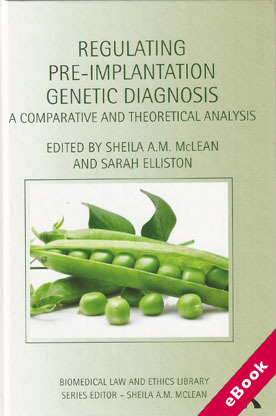
The device(s) you use to access the eBook content must be authorized with an Adobe ID before you download the product otherwise it will fail to register correctly.
For further information see https://www.wildy.com/ebook-formats
Once the order is confirmed an automated e-mail will be sent to you to allow you to download the eBook.
All eBooks are supplied firm sale and cannot be returned. If you believe there is a fault with your eBook then contact us on ebooks@wildy.com and we will help in resolving the issue. This does not affect your statutory rights.
The successful achievement of pregnancies after pre-implantation genetic diagnosis (PGD) was reported in April 1990.
The technology is often used for patients who are at substantial risk of conceiving a pregnancy affected by a known genetic disorder, however from this technology other more controversial uses have arisen such as HLA typing to save the life of a sibling, sex selection for social reasons, the prevention of late onset diseases, or to prevent diseases which may be genetically predisposed to developing such as breast cancer.
The technology surrounding PGD is constantly developing, giving rise to new and unexpected consequences that create fresh ethical and legal dilemmas. Featuring internationally recognized experts in this field this book critically explores the regulation of PGD and the broader legal and ethical issues.
It looks at the regulatory situation in a number of jurisdictions including New Zealand, Asutralia and the UK, but it also explores a number of themes of wide significance including a historical consideration of PGD and its part in the creation of the "genetic embryo" as a political tool, the over-regulation of PGD, the place of the woman in the regulation of PGD and the ethical difficulties in handling this additional unexpected medical information yielded by new technologies.